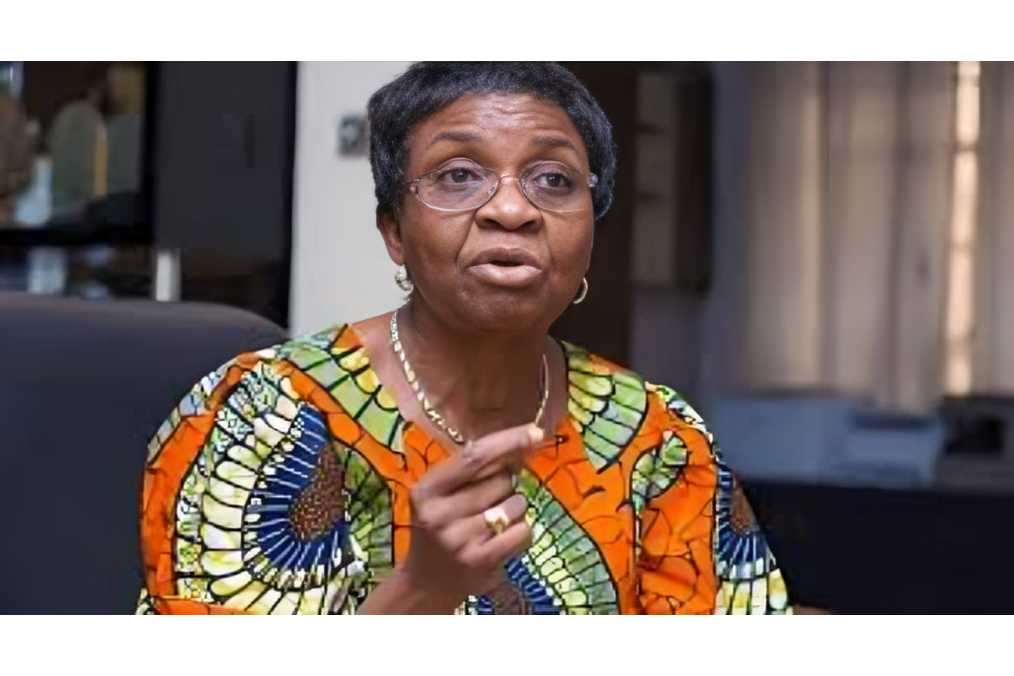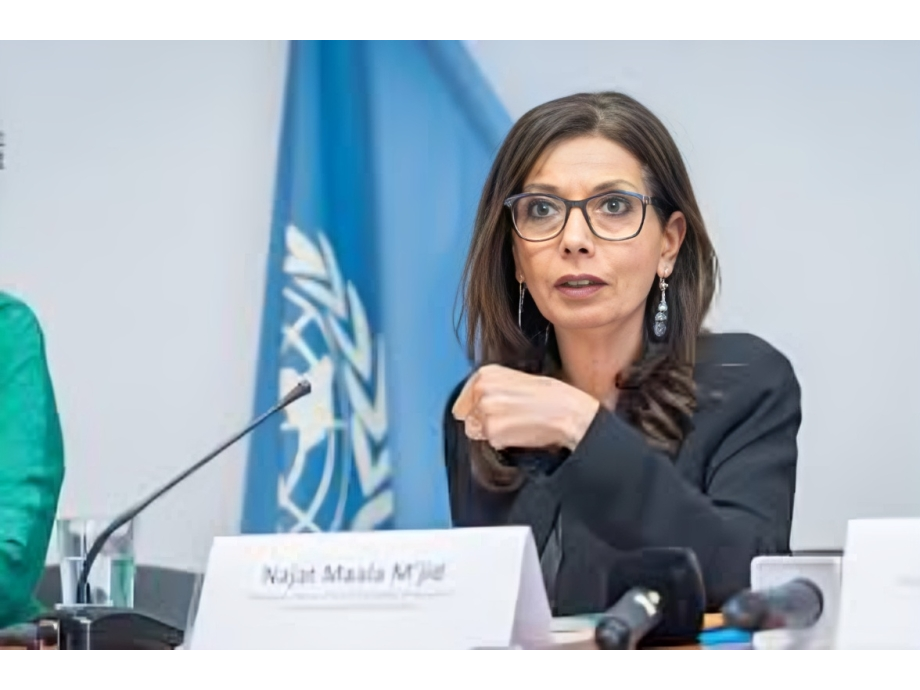Health
TB: Nigeria’ exceeded WHO’s targets by 15% despite covid-19 – Experts

By Laide Akinboade, Abuja
The National Coordinator of the African Coalition on Tuberculosis in Nigeria, Ibrahim Umoru, recently said despite Coronavirus (Covid-19) challenges, Nigeria was able to exceed World Health Organisation, WHO’s by 15%.
Umoru stated this at the community sessions of the just concluded National TB conference in Abuja, where delegates from over 20 countries shared their country-specific experiences on TB elimination.
He emphasized the need for resources and commitment, as exemplified during the COVID-19 pandemic in achieving the goal of ending TB by 2030 in Nigeria.
He therefore urged for broader collaboration, political will and realignment of priorities, Umoru explained if well meaning corporations and individuals prioritized and champion TB cause like other causes, the end of TB fight is imminent.
According to Umoru, “With the right diagnostics, resources, and support, we can achieve the 2030 goal,” he said.
Similarly, Deborah Ike, the Executive Director of the Debriche Health Development Centre (DHDC), highlighting the challenges being confronting Nigeria in the fight against TB stress the need to break all barriers in order to meet the 2030 target for TB eradication.
Ike noted that a lot more needs to be done in the areas of education and awareness as stigmatization and discrimination remain major barriers.
“Even though testing and treatment are free in Nigeria, many still die because they’re afraid to access these services.
“Some people avoid seeking treatment because they fear being judged.
“Others have lost jobs due to TB, which not only worsens their economic situation but can also lead to further psychological and physical decline.”
Ike emphasized the critical need for effective information dissemination to combat stigma, adding that it is important for people to understand that a person on treatment can no longer spread the disease, unlike one who has refused to be treated.
“This knowledge will reduce fear, encourage treatment, and help cut the chain of transmission”.
A Director for Tuberculosis at Breakthrough Action Nigeria, Dr Bolatito Aiyedigba, highlighted some of the innovations used to increase case detection such as the Check Am slogan, to encourage community people to test their lingering coughs.
”Some of the innovations were introduced during the COVID-19 era, COVID came with cough and cough is usually associated with tuberculosis as well. So it could be tuberculosis. Not every cough is due to COVID, so check it.
”Cough is due to different kinds of illnesses. And until you check, you will not know. And we also worked with the national TB hotline, when they call, they are directed on what to do, asked more questions and their fears are allayed, so they can get the appropriate testing. So that really, really helped. In addition to all the other innovations that came into the facility, testing was also improved.”
Aiyedigba also informed that the stigmatisation of people living with TB is still very high in Nigeria, noting that the country needs to tackle the menace.
”This is the next line of action that we’re going to tackle. Because now we’re fighting the TB cases, we’re putting them on treatment but we have to address the issue of stigma.
”And the stigma starts from self-stigmatisation, there’s no need to stigmatise yourself for having tuberculosis because tuberculosis is curable and treatable.
National TB Conference is an annual event organisedthe Stop TB Partnership Nigeria. The 2024 edition , themed “Public-Private Partnership and Integrated Service Delivery: Panacea to End TB in Nigeria,” was organised by the Stop TB Partnership Nigeria in collaboration with the Federal Ministry of Health and Social Welfare.
The three day event brought together Representatives from Stop TB Partnership Geneva, public health experts, community and civil organisations, private and public stakeholders from across the world, amongst many others.
General News
NAFDAC Announces WHO Prequalification of Locally Made Syringe

The National Agency for Food and Drug Administration and Control (NAFDAC), says a 0.5ml Auto Disable Syringe produced by Afrimedical Manufacturing and Supplies Ltd, has achieved World Health Organisation (WHO) prequalification.
NAFDAC Director-General, Prof. Mojisola Adeyeye, disclosed this at a news conference on Wednesday in Lagos, describing it as a significant milestone for Nigeria and the West and Central Africa region.
According to Adeyeye, Afrimedical, located in Ogun, is the first indigenous syringe manufacturer in Nigeria—and the entire West and Central Africa—to receive WHO prequalification for its syringes.
She noted that the achievement followed a rigorous process, substantial investment, and technical support and guidance provided by NAFDAC.
“This milestone aligns with the agenda of the President Bola Tinubu-led administration to promote local production of medical products,” she said.
“It is with great joy that I announce that, after a rigorous process, the WHO has prequalified Afrimedical’s 0.5ml AD Syringes.
“They are now eligible for national and international procurement by relevant agencies and organisations.”
Adeyeye added that Afrimedical was now the first manufacturer in West Africa to be recognised by WHO as operating at an acceptable level of compliance with Good Manufacturing Practice (GMP) requirements.
She emphasised that NAFDAC, in its drive to become a world-class regulator, embraced global best practices in all aspects of medical product regulation.
In 2023, only three out of seven indigenous syringe manufacturers in Nigeria were functional, collectively operating at less than 20 per cent of their combined installed capacity of 2.5 billion syringes per year, she revealed.
Adeyeye highlighted NAFDAC’s “5+5” policy, introduced in 2019, which restricted the importation of medicines and devices that could be produced locally.
“Products with five-year registration validity that can be manufactured in Nigeria will be granted one final five-year renewal, after which importation will no longer be allowed,” she explained.
Following NAFDAC’s attainment of WHO Maturity Level 3 in 2023, the agency began engaging international procurement bodies, such as UNICEF’s supply division in Copenhagen, to promote patronage of locally manufactured medical products, including syringes.
The Director-General urged other indigenous manufacturers to emulate Afrimedical’s achievement through collaboration and alignment with NAFDAC’s regulatory goals.
Also speaking at the event, Afrimedical General Manager, Mr Gabi Al-Aridi, described the WHO prequalification as a major milestone for the company, NAFDAC, and Nigeria as a whole.
Al-Aridi praised the federal government’s efforts to support local production and stated that “Afrimedical currently produces about 1.8 billion syringes annually.”
He reaffirmed the company’s commitment to high-quality, locally made medical products and encouraged Nigerians to embrace them to help boost the nation’s economy.
The National Agency for Food and Drug Administration and Control (NAFDAC), says a medical device, 0.5ml Auto Disable Syringe produced by Afrimedical Manufacturing and Supplies Ltd, has achieved WHO Prequalification.
Prof. Mojisola Adeyeye, the Director-General of NAFDAC disclosed this at a news conference in Lagos on Wednesday.
Adeyeye said the company located in Ogun State is the first st local manufacturer of syringes in Nigeria and also in West and Central Africa region to achieve the laudable feat.
She said the company was able to achieve the feat after a thorough arduous process, heavy investment and technical support and guardians by NAFDAC.
The D-G noted that the feat also align with the agenda of the President Bola Tinubu led administration to support local production of medical products in the country.
“it is with great joy and delight that I have the privilege of informing our stakeholders and the public that, after a rigorous process and a lot of investment by Afrimedical, the WHO has prequalified 0.5ml AD Syringes.
“The syringes have now been added to the WHO list of prequalified syringes and are therefore eligible for national and international procurement by relevant agencies and organisations.
“This is undoubtedly the outcome of meaningful collaboration between the company and NAFDAC, and the systematic implementation of NAFDAC policies over the years.
“Afrimedical has become the first manufacturer of syringes to be recognised by the WHO as operating at an acceptable level of compliance with GMP requirements in West Africa,” he said.
Adeyeye said in line with NAFDAC vision to be a world class regulator that ensures only quality and safe regulated products are used in the country, the agency embraced global best practices in all its regulatory functions of medical products.
She added that only three out of the seven indigenous syringe manufacturer were functional in the country in 2023 and they have a combine installed capacity of over 2.5 billion syringes per annum, while functioning below 20 per cent capacity.
She said:”The Agency started laying a foundational policy in 2019 for local manufacturing of medicines such as 5+5 regulatory.
“This directive which ensures that products that were previously imported with five-year registration validity and that can be manufactured in Nigeria are given the last renewal of five years and thereafter prevented from being imported.
“In 2023, after the attainment of WHO Maturity Level 3, NAFDAC engaged UNICEF supply chain in Copenhagen and at a workshop in Lagos to patronize locally manufactured medical products including syringes.
The Director-General, however, encourage other well-meaning local manufacturers of medical products to emulate this feat through harmonization of collective aspiration and synergy of effort with NAFDAC’s relevant directorates.
Speaking also, the General Manager of Afrimedical Manufacturing and Supplies Limited, Mr. Gabi Al-Aridi described the feat as a major milestone for the company, NAFDAC and Nigeria at large.
Al-Aridi, who commended the federal government for promoting local production of pharmaceutical products said the company producing about 1.8 billion syringes per annum.
He reiterated the company dedication to providing high-quality, locally manufactured syringes, while urging Nigerians to embraced locally made syringes to boost the nation’s economy.(NAN)
Health
UN lauds FCT’s Multisector Approach to Ending SGBV

The United Nations has commended the Federal Capital Territory Administration (FCTA) for its multisectoral approach to ending all forms of Sexual and Gender-Based Violence (SGBV).
Dr Najat M’jid, Special Representative of the UN Secretary-General on Violence against Children, gave the commendation in Abuja on Tuesday, when she visited the Awyetu Sexual Assault Referral Centre (SARC).
The SARC, located at Bwari General Hospital was established in 2020 by the British Council on behalf of the European Union under its Rule of Law and Anticorruption (ROLAC) Programme.
The centre was established to provide comprehensive medical, psychological, and legal support to survivors of sexual violence, with a special focus on children and vulnerable populations.
M’jid expressed excitement with the synergy among the different sectors working together to eliminate all forms of SGBV in the FCT.
“I am happy today because of what I have seen – many ministries are onboard supporting the fight against SGBV.
“This is because the problem is not only the problem of FCT Women Affairs; the issues are also in health, in Justice, and in communities,” she said.
She said that she was in the country to understand what was being done to address SGBV, “and how together, we can move forward”.
She added that Nigeria was one of the paths finding countries on ending violence against children.
She also said that the country was very involved and very committed to end all forms of violence against children and had made pledges.
“Visit to Nigeria is to see how we can move ahead, how we can support and how we can achieve set targets from the many commitments the country has made.
“We want to see how we can translate those commitments into concrete services that will prevent and address all forms of violence against children,” she said.
The special representative, however, stressed the need to address the drivers of SGBV, detect and respond to reported cases and ensure that it was not happening again.
She further said: “It is really important to make sure that the victims can be heard, be considered and be seen as victims and make the perpetrators accountable.
“There is also the need to stop justifying violence against children and women through poverty and through social norms”.
Earlier, the Mandate Secretary, FCT Women Affairs Secretariat, Mrs Adebayo Benjamins-Laniyi, pointed out that a multisectoral problem required a multisectoral approach to tackle it.
Benjamins-Laniyi said that a stronger synergy was required among critical stakeholders to deliver critical intervention from the local to the state level, in line with global best practices.
She described M’jid visit as a “positive disruption” that sparked a desire to strengthen partnership and collaboration among the different stakeholders to do more for women and children in the FCT.
The mandate secretary said that the FCT Administration had rolled out plans to reposition the SARC centre to provide quality integrated services to SGBV survivors.
Also, the Mandate Secretary, Health Services and Environment Secretariat, Dr Adedolapo Fasawe, said that M’jid’s visit reaffirmed the global resolve to protect children from violence.
Fasawe, who was represented by the Permanent Secretary in the secretariat, Dr Baba-Gana Adam, added that the visit was very encouraging.
She added that the visit also reinforced the role of sexual assault centre in ensuring access to care, justice, and dignity for survivors of sexual and gender-based violence.
She disclosed that the hospital had continued to sustain the provision of services at the centre when the ROLAC support ended, but amidst numerous challenges.
The mandate secretary, identified some of the challenges as funding for essential drugs and kits, staff training and incentives, inconsistent collaboration with law enforcements, and absence of prevention and community awareness programmes.
Foreign News
WHO: Social Factors Outweigh Genetics In Shaping Global Health

Housing, income, education, and other social conditions have a greater impact on health than genetics or the quality of health-care systems, according to a new World Health Organisation (WHO) study.
The research, set to be presented and live-streamed from Geneva on Tuesday, found that social determinants such as poverty, discrimination, and lack of access to resources account for more than 50 per cent of health outcomes.
These “social determinants of health equity” include the environments in which people are born, live, work, and age, as well as their access to power, money, and opportunity.
“These factors create unjust and avoidable health gaps,” said WHO Director-General Dr Tedros Adhanom Ghebreyesus.
“Billions of people face higher risks of illness and death simply because of the conditions they’re born into or the social groups they belong to.”
Tedros emphasised that much of the global disease and mortality burden was preventable, calling health inequity a result of political and social decisions that global leaders had the power to change


















